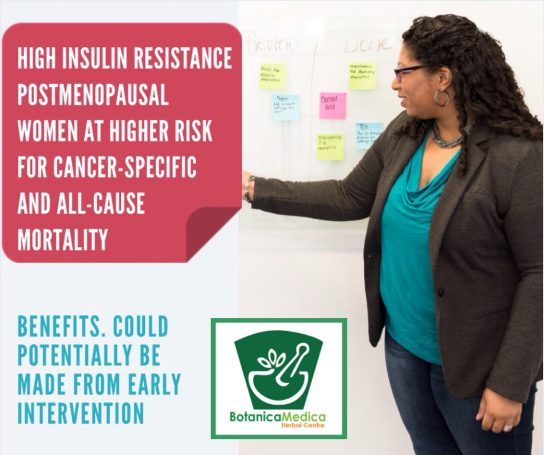Insulin Resistance and Cancer-Specific and All-Cause Mortality in Postmenopausal Women
TAKE-HOME MESSAGE
• This analysis of the Women’s Health Initiative was designed to evaluate the relationship between insulin resistance and cancer-specific and all-cause mortality among postmenopausal women.
• Insulin resistance was associated with a heightened risk for both cancer-specific and all-cause mortality, in postmenopausal women, who could benefit from earlier intervention.
– Neil Majithia, MD
BACKGROUND
Insulin resistance has been proposed as a mediator of the increased cancer incidence and mortality associated with obesity. However, prior studies included limited cancer deaths and had inconsistent findings. Therefore, we evaluated insulin resistance and cancer-specific and all-cause mortality in postmenopausal women participating in the Women’s Health Initiative.
METHODS
Eligible were a sub-sample of 22,837 Women’s Health Initiative participants aged 50-79 years enrolled at 40 US clinical centers from 1993-1998 who had baseline fasting glucose and insulin levels. Baseline insulin resistance was measured by the homeostasis model assessment of insulin resistance (HOMA-IR). Cancers were verified by central medical record review and deaths verified by medical record and death certificate review enhanced by National Death Index queries. Cox proportional hazards regression models were used to calculate adjusted hazard ratios (HRs) and 95% confidence intervals (CIs) for cancer-specific and all-cause mortality. All statistical tests were two-sided.
RESULTS
During a median of 18.9 years of follow-up, 1,820 cancer deaths and 7,415 total deaths occurred. Higher HOMA-IR quartile was associated with higher cancer-specific mortality (Q4 versus Q1, HR = 1.26, 95% CI = 1.09-1.47; Ptrend = 0.003) and all-cause mortality (Q4 versus Q1, HR = 1.63, 95% CI = 1.51-1.76; Ptrend < 0.001). A sensitivity analysis for diabetes status did not change findings. Among women with BMI < 25 kg/m2, higher HOMA-IR quartile was associated with higher cancer mortality (Fine and Gray P = 0.004).
CONCLUSIONS
High insulin resistance, as measured by HOMA-IR, identifies postmenopausal women at higher risk for cancer-specific and all-cause mortality who could potentially benefit from early intervention.
References
Published in Oncology
Journal Scan / Research · May 05, 2019
Journal of the National Cancer Institute
Artwork created in Canva – Photo from stocksnap

Recent Comments